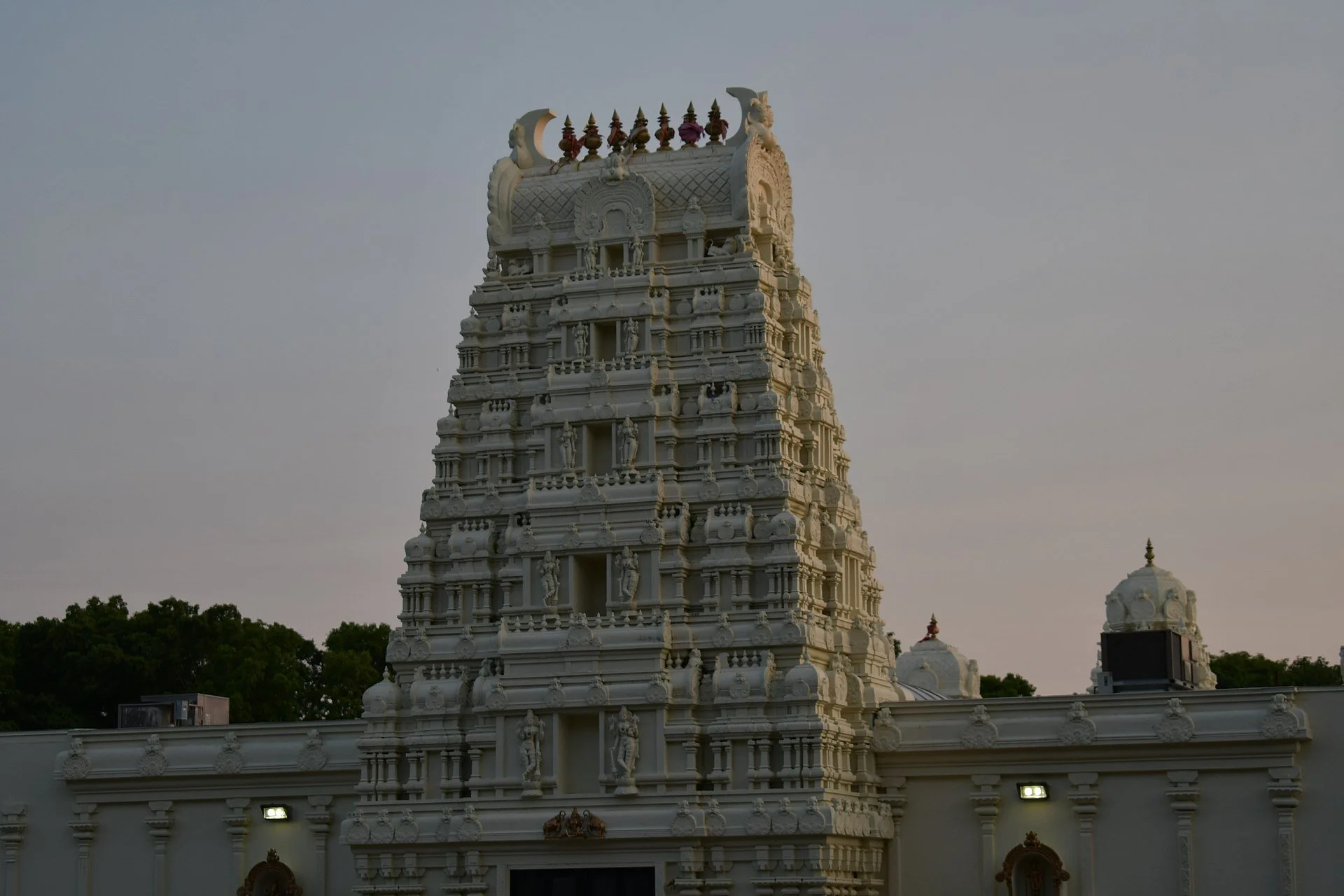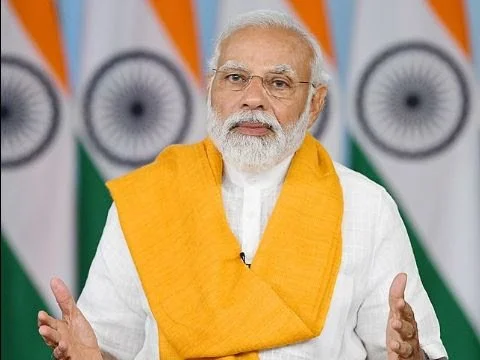
History of India in New England; Llewellyn King on what holds back that huge nation
Sri Lakshmi {Hindu} Temple, in Ashland, Mass.
— Photo by Tshiv
From “The Indian Presence in New England: People and Ideas” . Hit this link to read the whole article.
“There were some exceptions to this general atmosphere of non-acceptance {of Indians in America}. In general, the intellectuals of the Northeast were not active participants in such overt racialized discourse. Jane Jensen states that New England intellectuals developed a deep interest in Indian religions in the early 19th century, at about the time the New England-India trade developed. She describes how Boston society became interested in Indian literature and in Indian religions, especially Hinduism, Buddhism and the Brahmo Samaj movement. Intellectuals at universities such as Harvard began to cultivate an active scholarship and also initiated a nascent Indian art collection at the Boston Museum of Fine Arts. The theosophical writing of Ralph Waldo Emerson and Henry David Thoreau, as well as Walt Whitman’s poems (such as “Passage to India” and “Leaves of Grass”), are reflective of this trend. These earlier writings of the Transcendentalists, on the “life of the spirit” (developed on the basis of an earlier encounters with Hinduism), prepared the ground for Vivekananda and his message.’’
Indian Prime Minister Narendra Modi
By Llewellyn King
WEST WARWICK, R.I.
By the diplomatic hoopla in Washington that greeted Indian Prime Minister Narendra Modi last week, it would seem that intrepid U.S. explorers had just discovered India and were celebrating him in the way Britain treated tribal leaders in the 19th Century: Show them the big time. Then co-opt them to vow allegiance.
In this century, the U.S. equivalent of the big time is a state visit and endless professions of friendship. Experience says Modi won’t bite.
Historically, India has been reluctant to accept the embrace of the West. Although it is democratic, capitalist and has the largest diaspora, India’s affections have been hard to capture.
Since independence from Britain in 1947, India has sought global status by standing aloof and leaning toward countries and regimes that are anathema to the West. Its first prime minister, Jawaharlal Nehru, fostered the concept of a third force in the world: a constellation of unaligned nations with India at the center.
It showed a perverse affection for the Soviet Union — which was hardly nonaligned — and didn’t reflect the values of India: free movement of people, free press, capitalism and democracy.
Years ago, a retired executive editor of the Times of India, whom I knew socially, told me, “There are maybe a million Indians living in the United States and only a handful who live in the Soviet Union, but our leaders have always leaned toward them. It is a puzzle.”
There are now 4.2 million Indians living in the United States.
At the same time, Indians migrated across the world and made inroads into professions from Canada to New Zealand. In Britain, they are prominent in politics and the prime minister, Rishi Sunak, is of Indian descent.
In the United States, executives of Indian descent run some of the largest tech companies, including IBM, Google and Microsoft.
Indians are a huge force in English literature. Every year Indian writers feature on the prize lists for best new English novels. Whereas the computers most of us use may have been made in China, much of the software was written in India.
Indian words abound in English: Pajamas, ketchup, bungalow, jungle, avatar, verandah, juggernaut and cot are just a few.
The effect of Indian culture on the world is evident from curry and rice to polo to yoga.
Yet, India remains a distant shore, elusive and obvious at the same time. A country of enormous talent that lags economically. It now has the fifth-largest economy in the world. With 1.4 billion people, many of whom of obvious ability, the question must be, why does it still have crushing poverty?
Andres Carvallo, professor of innovation at Texas State University, told the “Digital 360” webinar, for which I am a regular panelist, he thought it was partly because India lagged in essential electricity production, pointing out that China has four times the electricity output of India.
But is this symptom or cause? I have been puzzling over why India doesn’t do better for decades. It seems to me that the causes are multiple, but some can be laid at Britain’s feet — not because the British were occupiers in India but because of some of the good things they left there that have perversely remained time-warped.
One of India’s ambassadors to Washington told me with pride that every occupier had enriched India and left something of value behind, from Alexander the Great to the Moguls and, of course, Britain and the Raj.
But the Brits also left behind a sluggish bureaucracy to the point of sclerosis and a legal system that is independent but takes an eternity to reach a decision. Additionally, some of the ideas prevalent in British Labor Party thinking — and long since abandoned — took hold in India and have been extremely detrimental. These included protectionism, a state’s role in the economy, and a fear of competition from abroad.
I believe that protectionism is the greatest evil. It discouraged competition, innovation and creativity. It inadvertently allowed a few families to concentrate too much wealth and economic power and to work to protect that.
India is more open now, but it needs to be vigilant against the evils that go with protectionism, which is still part of its DNA.
At one time, you could buy a brand-new Indian made-car — Fiat or Morris design — which was 30 years out of date. No need to innovate; just make the same car year after year.
If it liberalizes its economy, India may one day outpace China. Meantime, do luxuriate in those Indian words that have so spiced up English.
Llewellyn King is executive producer and host of White House Chronicle, on PBS. He’s based in Rhode Island and Washington, D.C.
On Twitter: @llewellynking2
Watch or Listen to White House Chronicle
Streaming: All episodes are free to watch on Vimeo [link]
On television: Visit our website [link] to find your location carrying station.
SiriusXM radio: Listen to White House Chronicle on P.O.T.U.S., Channel 124: Saturday at 8 a.m. and 6 p.m. ET; and Sunday at 4 p.m. and 11 p.m. ET.
#India
#White House Chronicle
Llewellyn King: In U.K.: Sex, booze, rock and Jihadism
It is a simple question, but there are only fragments of an answer. The question is: Why do so many Muslims, born in Britain, turn to Jihadism?
The best numbers available show that more than 500 young, British-born Muslims have traveled to Syria to fight for the Islamic State. By comparison, an estimated 100 Americans have taken up arms for the Islamic State. As the population of the United States is 313 million, compared to 63 million for the whole of Britain, the disparity is huge.
The “the enemy within,” as the British media call these young people, has deeply disturbed the British public, as it looks to its political leaders to take action. One writer, in The Daily Telegraph, says that the government has been soft when it should have been tough, and tough when it should have been soft.
The truth is that successive British administrations have been silent on the consequences of immigration since the second Churchill government, in 1951-55. Everyone is to blame and no one is to blame.
Britain never saw a large influx of immigrants after the Norman Conquest, in 1066. In fact, it had become quite proud of its tolerance for émigrés; Karl Marx was the exemplar. The Jews were tolerated after the 1650s, but excluded from many occupations and social circles.
Past and present Britain is made up of enclaves remarkably uninterested in each other. Hence, a small island nation can support 53 distinct, regional accents and dialects.
Idealists believed that post-World War II immigration would change Britain for the better, sweeping away its imperial trappings. Actually if anything eroded the class structure, it was the great wave of pop music and fashion in the 1960s.
Surveys show that of the immigrants from the Indian Subcontinent, the Indians, mostly Hindu, assimilated best and took to business -- and the class system -- with alacrity, many becoming millionaires. The Muslims, primarily from Pakistan, have fared the worst. They assimilated least and imported practices that are a savage affront to British values: forced and under-age marriages, honor killings, and halal butchers, opposed by many British animal-rights groups.
These same values have made life rough for young men of Pakistani descent. For working-class British youth, sex, booze, music and soccer are their safety valves. Sexual frustration is endemic all over the Muslim world; it is at work among devout, young Muslim men in Britain, where sex is celebrated in the culture.
British business had a role in the mix of immigrants in the 1960s. Businesses wanted workers for the textile mills and factories in northern England, who would do the dirty, poorly paid work nobody else wanted. The proprietor of large tire-retreading company boasted to me in 1961 how he had solved the labor problem by recruiting rural Pakistanis, who worked hard and cheaply and kept to themselves. His words have echoed with me down through the years.
This alone does not explain why, for example, a preponderance of the Jihadists are from London, or why some of them seem to be university types from the London School of Economics, King's College London, the School for Oriental and African Studies, and others. If you are young, male and Muslim, and even somewhat religious, it is easy to be convinced that you live among the infidels with their alcohol and preoccupation with coitus.
But, again, it is not explanation enough; not an explanation of why a generation of British-born young men are attracted to the life and values of their distant ancestors, or why they have shown such savagery.
Britain has comforted itself by dealing with self-identified “community leaders” in the Muslim community. Unfortunately the real leaders have been fiery, foreign-born imams who proselytize hatred in the mosques that serve Britain’s 2 million Muslims. The Muslim communities have been hidden in plain sight from the British mainstream.
Llewellyn King (lking@kingpublishing.com) is executive producer and host of "White House Chronicle," on PBS, and a long time international journalist, publisher and business consultant.


